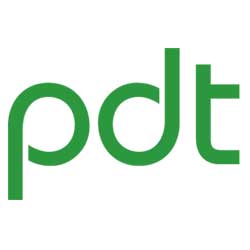Policies and procedures
Here is a list of the main policies you need to be aware of as a learner. These policies are here to help you throughout your time with us and to ensure you are familiar with our processes and how we can support you.
To read any of these policies in full please follow the links below to download them.
If your course requires you to enter a work placement, please ensure you also familiarise yourself with your workplace policies, processes, and procedures, and be sure to follow them while at your place of work.
| POLICY TITLE | SUMMARY |
| Appeals Policy Appeals form | What to do if you feel your coursework / an assessment has been unfairly judged / graded https://form.jotform.com/223032727711347 |
| Covid-19 Policy | Covers the requirement, current government guidelines relating to Covid-19 in England and how PDTT protects learners, staff, and employers. |
| Complaint & Compliment Policy Complaint & Compliments form | How to make a complaint or provide positive feedback. Any dissatisfaction is addressed as promptly to improve the quality of service provided. https://form.jotform.com/223123359258355 |
| Equality and Diversity Policy | How we support the principle of equal opportunities, opposing all forms of unlawful or unfair discrimination. |
| Harassment and Anti Bullying | Protecting the dignity of learners and the support available to learners. |
| Health and Safety Policy | The ‘safe learner concept’. |
| Plagiarism | Plagiarism is academic misconduct, this policy sets out what plagiarism is; when it can occur and procedures to follow if an incident of plagiarism is identified in a learner’s assessment. |
| Prevent Policy Prevent Risk Register | Prevent aims to stop people being drawn into terrorism, extremist violence and/or radicalisation. Not all extremism is harmful or criminal, but sometimes those who behave in an extreme way can go on to hurt and harm other people. |
| Safeguarding Policy | Keeping staff and learners safe. Understanding your responsibilities in relation to safeguarding those at risk and who to escalate concerns to within PDTT. |
| Quality Assurance | Outlines the quality assurance processes that are part of the Quality Cycle over the course of the academic year. Ensuring feedback can be given and acted upon. |
| Special Considerations and Reasonable Adjustments Policy | This policy is aimed at ensuring that learners, eligible for special considerations/reasonable adjustments in assessments, can achieve their qualification without compromising the assessment process or the assessment objectives of a qualification. |
| Information, Advice and Guidance (IAG) | Information, Advice and Guidance (IAG) details the support you can expect from PDT before starting your course; while studying with us; and how we can help you with your next steps. |
